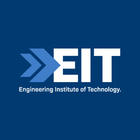Graduate Diploma of Engineering (Safety, Risk and Reliability)
Graduate Diploma of Engineering (Safety, Risk and Reliability)
The Graduate Diploma of Engineering (Safety, Risk, and Reliability) is tailored for professionals aiming to enhance their expertise in managing safety and reliability in engineering contexts. This program addresses the growing industry need for engineers skilled in identifying, assessing, and mitigating risks while ensuring system reliability and safety. The Graduate…
Categories
COURSE DESCRIPTION
The Graduate Diploma of Engineering (Safety, Risk, and Reliability) is tailored for professionals aiming to enhance their expertise in managing safety and reliability in engineering contexts. This program addresses the growing industry need for engineers skilled in identifying, assessing, and mitigating risks while ensuring system reliability and safety.
The Graduate Diploma of Engineering (Safety, Risk, and Reliability) (GDSR) offers a comprehensive curriculum designed to empower students with essential knowledge and skills vital for navigating the multifaceted realm of safety and risk management. Focused on critical areas such as system safety, risk mitigation, and reliability enhancement, this program prepares students to proficiently manage safety systems and address risks across diverse operational landscapes. It is tailored for individuals with backgrounds in mechanical, chemical & process, instrumentation & control, electrical, or industrial plant and systems engineering, particularly priming them for advancement within the safety and reliability industries, fostering their professional growth and confidence.
Throughout the program, students explore units covering foundational principles like system safety, risk management, incident investigation, workplace health and safety, and reliability engineering methodologies. Emphasizing practical application, learners gain hands-on experience with cutting-edge safety technologies and statistical methods for reliability analysis. The capstone project serves as the culmination of the course, challenging students to demonstrate their autonomy and accountability by applying their acquired knowledge and skills to real-world scenarios. This project showcases their ability to tackle complex safety, risk, and reliability challenges with innovative and practical solutions, solidifying their readiness for professional roles in the field.
Course Benefits:
Gain essential skills: Acquire knowledge crucial for effective safety and risk management.
Expand career opportunities: Prepare for advancement in the safety and reliability industries.
Practical application: Apply theoretical knowledge to real-world scenarios with modern safety tools and methods.
Expertise development: Learn incident investigation and reliability engineering techniques from industry specialists.
Real-world application: The Capstone project offers an opportunity to address complex challenges with practical solutions.
REQUIREMENTS
For entry into most EIT degree programs, you need to have completed a minimum level of education similar to successful completion of Australian Year 12 with good grades.
EDUCATIONAL INSTITUTION
The Engineering Institute of Technology (EIT) delivers industry driven programs to equip its students with the skills required in the real industrial world. Its study options are available across Perth and Melbourne; and include classroom sessions, practical lab exercises, assessments, class discussions and self-study. Additionally, students enjoy access to industry experts based around the globe through live and interactive online presentations. All EIT programs provide access to remote laboratories and cutting-edge simulation software. Hands-on laboratory practicals are an essential component of EIT’s programs to ensure students put theory into practice. These hands-on workshops cover the major discipline-specific applied skills required for competency in engineering practice.




